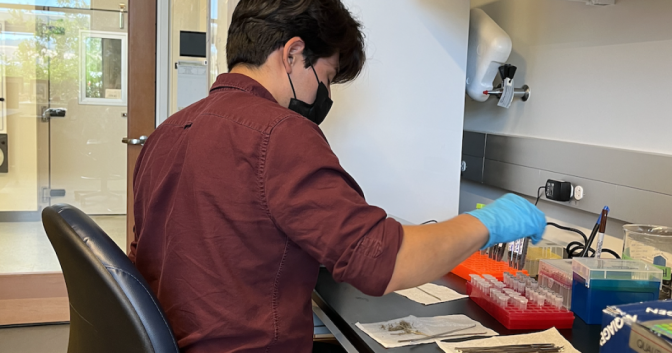This story is free to read because readers choose to support LAist. If you find value in independent local reporting, make a donation to power our newsroom today.
Attention Citizen Scientists: Here's How You Can Help Biologists Document California's Rich Biodiversity

Researchers want your help to collect samples at four specific locations in Los Angeles as part of a much wider effort in the state to learn about changes in biodiversity.
The project, called CALeDNA, for California Environmental DNA, encourages everyone to be a citizen scientist. Volunteers get a kit to take small amounts of soil, sediment, and water.
Because plants, animals and fungi shed DNA, one can sequence the genes of living things that have once passed through that sample. Then volunteers upload the data through the iNaturalist app.
Ariel Levi Simons with UC Santa Cruz says studying changes in biodiversity reveals important trends.
"One of the big things we're working on now is getting samples across the state over time to track how do ecosystems shift and recover from fire," Simons said.
On this coming Saturday (July 30), volunteers will be taking samples along the L.A. River watershed at the Sepulveda Basin, Arroyo Seco, Bowtie Parcel and in Long Beach. The events are scheduled to begin at 10 a.m.
The study of California is of high interest because "California's wildlife is particularly at risk because many of its species are endemic (only found in California) and over 70% of natural habitat has been lost due to development and land degradation," according to the project's website.
Enlisting more people to establish reliable baselines, project backers note, is "key for early detection of species declines."
To date, CALeDNA says the project has they've been able to cover:
- 4,286 sites
- Identify 38,072 organisms
- And register 6,065 users








